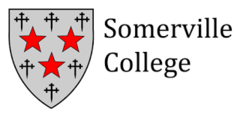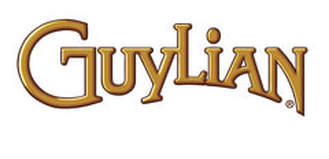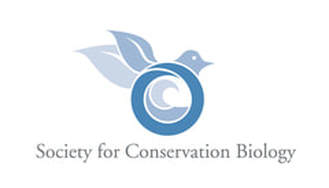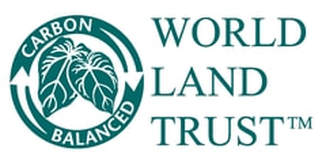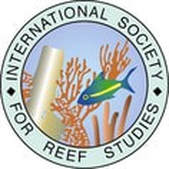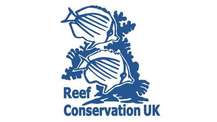The Venues
|
RCUK 20th Anniversary Conference Dinner
Somerville Hall was founded in 1879, and named in honour of the Scottish scientist Mary Somerville. There were just twelve students when it began, but in singling out Mary Somerville, a public intellectual in an age against women pursuing academic careers, the founders made clear the hopes they had for the women who attended. In 1920, following the work of Somerville Principal Emily Penrose, the University of Oxford granted women the right to matriculation to all degrees, and presented its first candidates in October of that year. The years that followed brought great scientists, novelists and politicians alike through Somerville’s doors: Vera Britain, Dorothy Sayers, Dorothy Hodgkin, Indira Gandhi and Margaret Thatcher all studied at Somerville. In 1994 the College voted to accept men for the first time. |
|
Conference Venue
The University of Oxford’s Grade II listed Examination Schools building was designed by Sir Thomas Jackson (1835–1924) and was completed in 1882, in Clipsham stone. It is one of the largest buildings owned by the University, and as the name suggests, the main purpose of the Schools is for the organisation and administration of the university’s examinations. It also provides a major lecturing facility for the University and is used as a meeting and conference venue outside term time. During the two World Wars the Examination Schools was used as a military hospital and in the basement of the building signs to the “resuscitation room” can still be seen today. |
|
Drinks Reception
The Oxford University Museum of Natural History displays many of the University’s natural history specimens. The neo-Gothic building was designed by the Irish architects Thomas Newenham Deane and Benjamin Woodward and was completed in 1860. It consists of a large square court with a glass roof, supported by cast iron pillars, which divide the court into three aisles. Statues of eminent men of science stand around the ground floor of the court—from Aristotle and Bacon through to Darwin and Linnaeus. Although the University paid for the construction of the building, the ornamentation was funded by public subscription. |
Trade Stands
|
HyperSurvey is a spin-off company from the Max Planck Institute in Bremen, Germany. It has a unique technology at its disposal in the form of the diver-operated ‘HyperDiver’. The HyperDiver technology rapidly creates large-scale sea floor maps, which visualise the effects of, for example, climate change. Where traditional technologies take weeks to months to complete and report on surveys, our technology reduces the same effort spent to days. Our technology is objective, and therefore anyone can use this technology to produce accurate sea floor maps, not only experts/scientists. The HyperDiver technology is suitable to any aquatic ecosystem. At our trade stand, we would be happy to demonstrate the HyperDiver to you, and explain more about this technology.
|
|
Ecotone develops and delivers real-world environmental survey solutions based on modern research. We are a spin-off from NTNU, and partly owned by NTNU Technology Transfer. As a leading partner in R&D projects worldwide, we are in a unique position to constantly improve our core technology and its applications. At their stand they will be demonstrating solutions for mapping and monitoring of coral reefs and benthic fauna.
|
|
Guylian Belgian Chocolate is one of Project Seahorse’s major sustaining sponsors of research and conservation projects and it’s commitment to marine conservation is matched only by the excellence of its chocolates. We (the RCUK committee and delegates) also have to thank Guylian and Project Seahorse for the tradition of supplying each year’s RCUK conference with chocolate!
|
|
Understanding what is happening inside your aquarium is vital to ensuring that the aquatic life remains healthy. The team behind this revolutionary water monitoring device will be here to discuss how it allows you to continuously track the changes in the water parameters, alerting you to the problems before they affect the fish.
|
|
Frontiers in Marine Science has teamed up with the European Coral Reef Symposium to collate a series of articles focused around 'Coral Reefs in the Anthropocene'. This Research Topic is available to all attendees of the conference to submit to and will act as the conferences proceedings. To find out more, stop by our booth.
|
|
Blue Ventures is a marine conservation organisation which works with coastal communities to rebuild tropical fisheries. As well as community-led fisheries management, our work spans areas including community health, mangrove conservation and supporting alternative livelihoods such as aquaculture. The communities we work with are at the heart of what we do - come by the stand to learn more about our work. We’ll also be selling jewellery made from the fins and spines of invasive lionfish caught in Belize - all proceeds go to Belioness, a Belizean women’s group Blue Ventures supports which utilises lionfish to provide participants with an additional source of income.
|
|
Springer Nature is a leading global research, educational and professional publisher, home to an array of respected and trusted brands providing quality context through a range of innovative products and services. Springer Nature is the world’s largest academic book publisher, publisher of the world’s most influential journals and a pioneer in the field of open research.
|
|
Founded in 1996 by Dr. Amanda Vincent and Dr. Heather Koldewey, Project Seahorse is a marine conservation group dedicated to securing a world where marine ecosystems are healthy and well-managed. They begin with cutting-edge research and turn findings into highly effective conservation action, in collaboration with governments, local communities, and other stakeholders. As the IUCN global authority on seahorses and their relatives, they work to protect seahorses, and through seahorses, they also support marine conservation more broadly. Their home institutions are The University of British Columbia’s Institute for the Oceans and Fisheries and the Zoological Society of London. Guylian Belgian Chocolate and John G. Shedd Aquarium are our major partners.
|
|
World Land Trust (WLT) is an international conservation charity, which protects the world’s most biologically important and threatened habitats acre by acre. Since its foundation in 1989, WLT has funded partner organisations around the world to create reserves, and give permanent protection to habitats and wildlife. Head to their stand to offset the carbon from your trip to ECRS. The money raised will go towards the REDD+ (Reducing Emissions by Deforestation and Forest Degradation) Project for Caribbean Guatemala: The Conservation Coast. This project protects tropical rainforests and prevents the conversion of forests to cropland and pasture, and has achieved certification from the Verified Carbon Standard (VCS) and Climate, Community and Biodiversity Alliance Standard (CCBA), meaning it can produce Verified Carbon Units (VCUs), which are certified emission reductions.
|
|
#OneLess – led by ZSL and partners in the Marine CoLABoration – is a movement of pioneering individuals, communities, businesses, NGOs and policymakers, collaboratively striving to reduce the number of single-use plastic water bottles entering the ocean from the city of London. Londoners are among the highest users of bottled water in the UK. The average London adult buys 3.37 plastic water bottles every week – that’s 175 every year per person, and over a billion per year on a city level. Sadly, many of these end up in the River Thames and flow out to the ocean. Together they are championing and enabling a new refill culture, where using a refillable water bottle is the new norm and where throwaway, single-use bottled water is a thing of the past. Swing by their stand, chat to the team, take the #OneLess pledge and see how your work place can ditch single-use plastic water bottles.
|
|
Visit the International Society for Reef Studies’ stand to catch up on the latest news from reefs around the world, find out about the International Year of the Reef and sign up for Mentor lunches! The newly formed ISRS Student Committee will also be here to chat to about what they’re up to and how to get involved
|
|
We understand that childcare can be a major challenge when attending a conference or symposium. To take on that challenge the ECRS committee have teamed up with Lemonjelly Childcare (www.lemonjellychildcaresolutions.co.uk) who will provide safe on-site childcare for attendees who have let us know that they will children in tow. There are limits on capacity, please contact us prior to bringing along the little ones. Family friendly conference Two certified nannies equipped with toys will be based in the Family Room (Room 10) throughout the conference. The room also provides a quite space for baby feeding. Changing facilities are located opposite Room 8.
|
